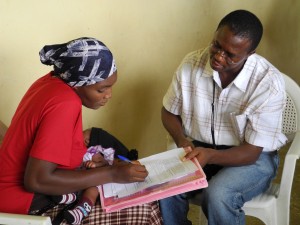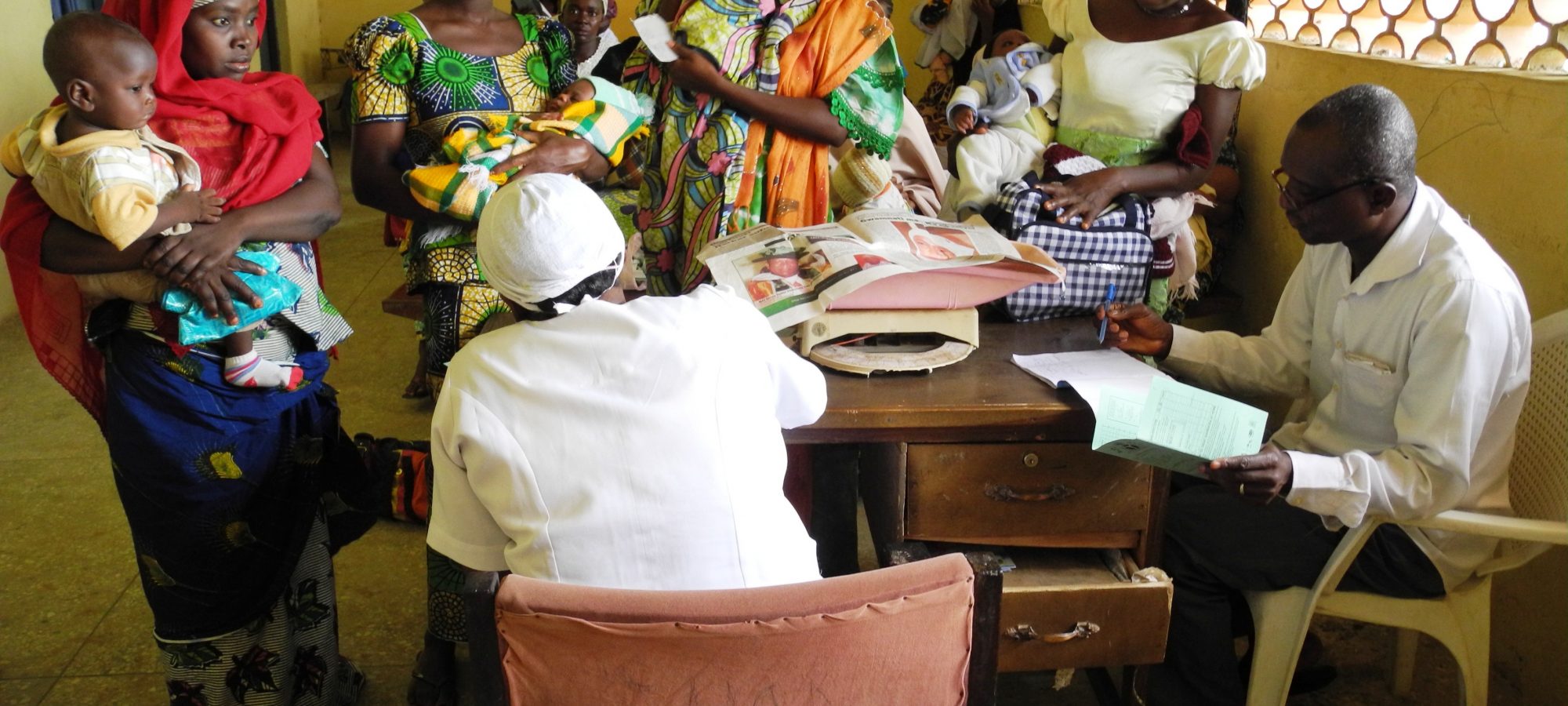Malaria Consortium’s Senior Technical Malaria Officer, Osita Okonkwo, interviews Fatima Abdulwahab from Wuse District, near Abuja, to hear her views on using mosquito nets.
The true value of long-lasting insecticidal nets (LLINs) can only be understood through the invaluable accounts of consistent users in rural communities, such as Fatima.
Fatima Abdulwahab is a 27 year old mother of three children whom she describes as her ‘precious gifts’. Her husband, Musa, is a factory worker, who earns barely enough to sustain the family. Fatima herself has no formal education and looks after her family. Musa and Fatima previously lived for many years in the northern Nigerian city of Kano. Four years ago Fatima relocated with her children to Wuse District, northwest Abuja, to live with her husband’s parents, although Musa still lives and works in Kano.
Fatima’s only sickness since childhood had been malaria, caused by bites from infected mosquitoes. She was hospitalised several times during her first pregnancy and treated for malaria, during which time she almost lost her life. She recalls how one of her husband’s sisters, a mother of five young children, died of malaria during pregnancy a few years back. Her death, she said, was a turning point in the lives of the family and prompted her husband and some other family members to save money to procure mosquito nets. Although the nets were of low quality, they worked and helped to reduce cases of malaria in the family.
In 2010, Fatima’s nearest health centre in Wuse started free distribution of LLINs for pregnant women. Fatima was among one of the first groups of pregnant women to receive nets from the facility. She said that now she and her children all sleep under mosquito nets, they no longer have malaria. Fatima also made sure that all the pregnant women she knew in her village visited the health centre to receive free nets as well.

“Since we started using the nets, my children and I don’t get malaria again. The net is very, very good; it is saving our lives. We sleep under the nets day and night. I cannot sleep without my net. Even when the weather is hot, I must sleep under the net.”
Fatima’s story echoes that of several other women whose lives have been changed by the use of LLINs. All can talk about the benefits of being able to receive and use nets. Their stories demonstrate what can be achieved through sustained net distributions to poor households in rural communities.
SuNMaP (Support to National Malaria Programme ) provides support to the Nigerian government and people in tackling the massive burden of malaria in the country. It is implemented by international and local partners, funded by UKAid and managed by Malaria Consortium.
SuNMaP works in close co-operation with Nigeria’s National Malaria Control Programme (NMCP), in selected states and Local Government Areas (LGAs), including Anambra, Kano, Lagos, Niger, Katsina and Ogun states. Work began in a further four states in 2012.
Following mass distribution campaigns in programme supported states, SuNMaP has successfully distributed about 1,349,356 LLINs through non‐commercial continuous distribution channels. Pregnant women are provided with LLINs during their booking visits as part of the focused antenatal care (ANC) and infants presenting at routine immunization clinics are given LLINs, usually linked to measles immunization or child health weeks. The programme is supporting the state malaria control programme to expand LLIN distribution to more eligible facilities while exploring other viable channels of distribution such as schools and community directed distributors, drawing from lessons gathered from the national RBM partnership.
